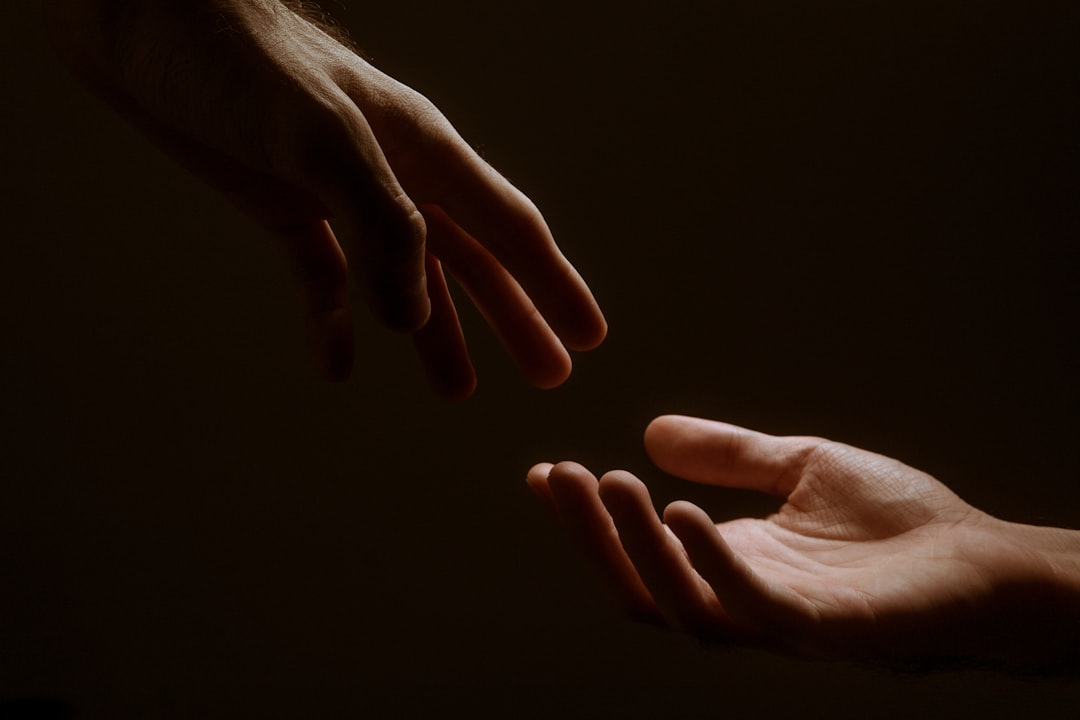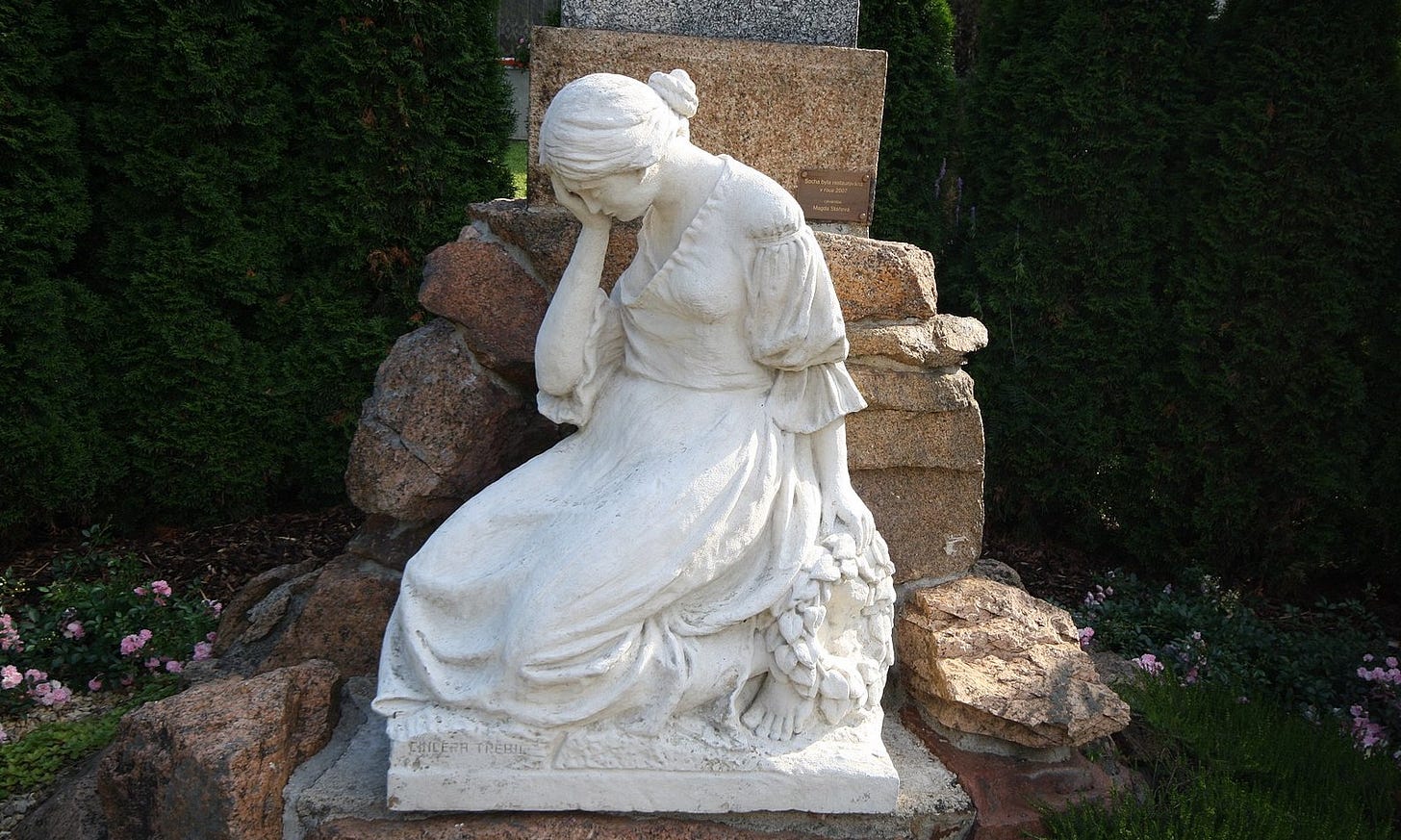Betrayal Blindness: Forgetting as a Survival Technique

The need to trust is a powerful force. Establishing and maintaining a secure sense of safety is an essential component to all aspects of healthy living. Trusting those in your intimate circle helps foster safety, security and well-being in all areas of life.
No house can stand without the stone of trust as its foundation. If trust has been destroyed the house is built on sand only, liable to crumble at any moment. “And the rain fell, and the floods came, and the winds blew and beat against that house, and it fell; and great was the fall of it” (Matt 7:27).
Because the need to trust is so crucial, it’s also what binds us to toxic relationships and creates what abuse expert Jennifer Freyd calls “betrayal blindness.”
Betrayal blindness is not only the inclination to minimize or ignore distressing events, but to completely forget they ever happened. This doesn’t mean a person is crazy, has early-onset dementia, or is delusional. Betrayal blindness is a result of severe trauma, especially when the harrowing events are ongoing or frequent.
Forgetting is a survival mechanism. By failing to see red flags in our relationships or ignoring obvious truths, we’re not purposely deluding ourselves. We’re merely trying to latch on to a disappearing sense of safety, to avoid uncomfortable realizations about what’s truly going on in our lives.
Betrayal blindness at its inception is based on an extreme need to keep some aspect of a situation intact. If the marriage, the family, or the community appears necessary for survival, remaining blind to the betrayal is a survival strategy.
(Jennifer Freyd and Pamela Birrell, Blind to Betrayal)
Acknowledging the extremity of domestic abuse can often seem too much to handle. If the truth was fully faced, change would be necessary—and change is often terrifying.
Individuals in abusive relationships experience high levels of stress and anxiety over many things. For example:
If I left him, where would I go?
I’m financially dependent on my spouse—how will I feed my children if we split up?
Will he come after me or the children if I leave? (This is a very valid fear, since abusive individuals sometimes turn murderously violent when their relationship is ending, even if they’ve never been physically assaultive before. Call the DV Hotline at 800-799-7233 if you need help.)
How can I know if leaving him will be best for the kids, or if it’ll cause them more harm?
He was abused as a child (or cheated on by his ex, or otherwise victimized), so it’s not his fault that he’s this way. If I’m patient enough, he’ll change and then everything will be good again. (Although this is a natural and empathetic way to view the situation, you can’t ever make an abuser change. That determination must begin from within the abuser, not externally by any action on your part.)
I understand all these concerns—not just on a professional level, but on a personal one as well. Trust me, they’re valid—yet they also must be faced and resolved in whatever way is best for each individual circumstance.
Betrayal blindness serves us well in the day-to-day, moment-to-moment situations. However, as Bessel van der Kolk, M.D. so rightly points out, “the body keeps the score.” Eventually trauma will catch up to us, if we don’t catch it first.
Exposure to abuse and violence fosters the development of a hyperactive alarm system and molds a body that gets stuck in fight/flight, and freeze. Trauma interferes with the brain circuits that involve focusing, flexibility, and being able to stay in emotional control. A constant sense of danger and helplessness promotes the continuous secretion of stress hormones, which wreaks havoc with the immune system and the functioning of the body’s organs. Only making it safe for trauma victims to inhabit their bodies, and to tolerate feeling what they feel, and knowing what they know, can lead to lasting healing.
(Bessel van der Kolk)
Forgetting As a Way to Emotionally Survive
Years ago, I suffered from severe and debilitating depression due to repeated trauma caused by domestic abuse.
At that time, despite years of suffering, I still didn’t recognize or acknowledge what was happening to me. For months I’d been wondering why I was so tired. I could barely move. I had no appetite, even though I was ravenously hungry. It felt as if I was constantly walking through water, with a weighted blanket across my back. At the same time, my mind was hyperactive and unable to rest.
Something was definitely wrong. I feared cancer, or an auto-immune disorder, or … something really, really bad.
Because I felt really, really bad.
After finally getting the courage to research my symptoms, the diagnoses was unavoidably clear: I was seriously, clinically depressed.
It took more than a month after my realization before I finally dared to tell my husband what I was going through. I felt shame, compounded with the lack of realization that my marriage was abusive. Yes, I was fully aware that he would turn into Mr. Hyde on a regular basis. I knew I was afraid of him and that my self-esteem was shot. However, he claimed we merely had a “difficult” marriage, as well as a serious communication problem.
We had a “difficult” marriage because I didn’t know how to communicate properly, or how to be a good wife. I didn’t know how to love. I was a failure as a spouse, as a mother, as a person.
Or so he continuously told me.
Another reason it took me awhile to confess my depression was because I was terrified my husband would hold it against me. I was afraid he’d tell me I was crazy (just like his ex, as he so often said). I was fearful that he’d use my problem as a further excuse to “prove” why our marriage was in shambles.
But eventually I had to say something. I needed to open up to someone, and at that point I had no other friends. I needed support, comfort, empathy.
And love. I desperately needed love.
And so, in a cry for help, I confessed to my partner. I told him I was seriously depressed.

I didn’t receive compassion, concern, or a warm shoulder to relax against in relief. Instead, my supposedly-supportive partner flew into a frothing rage. He began shouting, accusing me of hating him, claiming I blamed him for everything, and otherwise making the conversation all about him and his needs.
It was late at night by the time his verbal tirade began to wind down. I was drained. I wanted to go to bed. He refused.
Alone, more depressed than ever, I curled up in a tiny ball in my (our?) huge king-sized bed and tried to sleep, yet rest was impossible. Instead, I began writing in my journal, until finally my eyes and heart were too heavy to continue.
The next morning when the sun peeked its head above my window, the spot next to me was still empty. I again began writing in my journal, so I’ll let my own words from back in 2017 speak for themselves:
I woke up in the early morning to find the bed still empty. A search of the house revealed Daniel* passed out on the couch. So instead of being with me or helping me as a friend should, he concentrated on how bad this made him feel about himself.
I want a real friend. I need a real friend. He can’t be a friend. He doesn’t even know how.
That morning, after discovering my passed-out husband, I went into the kitchen to put on coffee, greeting him as I normally would when he finally woke from his stupor. We then went on with our day, business as usual.
And I forgot. The entire situation, gone. Memory erased.
Obviously the trauma of yet again being emotionally betrayed by my someone I’d trusted had been too much for me. I couldn’t face the deep hurt or allow my heart to be broken even more than it already was.
In order to survive, my mind repressed all thoughts and remembrances of the event.

Years later I was shocked when I came across my journal entry from that night. There it was, described in thorough detail. My anguish. My hurt. My brokenness.
I couldn’t believe how completely I’d forgotten such an emotionally distressing situation, yet I had.
Betrayal blindness is an unconscious way of dealing with traumatic stress and anxiety, as well as avoiding the overwhelming feeling that everything is wrong in the world.
Thawing from this place is extremely painful. I’m not going to sugar-coat anything because I’ve been there, I’ve done that. I’ve become nauseous by the honey of well-meaning but clueless people.
It’s time to face the truth: trauma and recovery hurt. A lot. Yet even though the journey is excruciating, it’s also necessary.
He heals the brokenhearted and binds up their wounds.
(Psalm 147:8)
I’ve realized that only way to regain my lost memories is to face them head-on. I have to remember how horrific things were in my marriage, how I moved through my days in a state of terrified alertness. I have to recall each event, and process each memory individually.
I’m not doing this so I can obsess over how “bad” my ex-abuser had been, or to build resentment toward him for all he has done. Instead, I’m doing this for myself—because my trauma has been driven deep inside my physical body, and like a poison I need to root it out, once and for all.
I need to reemerge from my own self, to let myself soar once again.
I also need to release my feelings of guilt and self-blame, my constant self-reproach and self-condemnation. That interior negative voice haggling and continuing to abuse me needs to be thoroughly rejected and rebuffed. I can recognize it now as the voice of lies, and I don’t want any part of lies. I’ve had enough of them already. No more.
I reject all thoughts of being unlovable, unworthy, naïve and stupid for “letting” abuse and betrayal happen to me.
I need to love myself as Christ loves me.
Recovering our lost memories helps us to reframe them. One way to do this is by creating a recovery plan—writing down what needs to change, as well as all current and future goals. When working on painful memories, the support of a trauma-informed EMDR therapist is also very beneficial. I’m not familiar with EMDR on a personal level, but have heard many healing testimonies of its immense therapeutic benefits.
Healing is a journey, and every good journey takes time as well as loving support from a trusted network of friends and professionals. As for me, I’m not only willing, but I’m grateful to take the time to heal slowly, and thoroughly.
Time is one of God’s gifts to humankind.






Excellent essay, Jenny!
Oh my gosh. The reasons for staying in abusive relationship above were almost word for word same as what a woman posted in an fb group I’m in!!!! She was surprised that nearly all replies told her to leave.